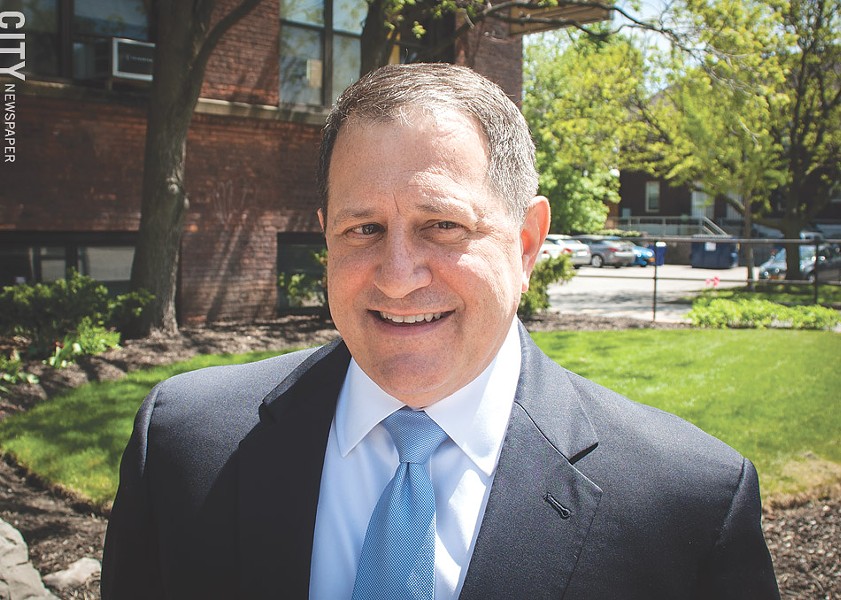The 14th fits into the tidy national narrative that's been woven by the big papers and cable news stations. Powerful Democratic House member Joseph Crowley got taken down by Alexandria Ocasio-Cortez, a 28-year-old activist and former Bernie Sanders organizer whose campaign was powered by a coalition of progressive activists. Ocasio-Cortez's victory is part of the party's post Hillary-Bernie reckoning: a generation of energetic leaders rising from the grassroots to tear down the old guard, the story goes.
This was not to be in Monroe County. Joe Morelle, the State Assembly's second-in-command and the former chair of the Monroe County Democratic Committee, scored a decisive victory against three challengers: former journalist Rachel Barnhart, Rochester City Council Vice President Adam McFadden, and Brighton Town Board member Robin Wilt.
Morelle most likely benefited from his extensive campaign operation, which he's built up over his 30 years in politics. He won every town and every city legislative district except two, both of which McFadden carried.
The overall turnout numbers, however, are problematic and could indicate some level of apathy or dissatisfaction with the candidates, or even a lack of awareness about the election.
Just under 20 percent of the district's registered Democrats voted. There's no direct comparison for a midterm Democratic primary in the 25th Congressional District's current form, since the late Louise Slaughter didn't have a Democratic challenger in recent years. But the past two Rochester mayoral elections have seen Democratic primaries, so they provide a point of reference. Citywide turnout in last week's Congressional primary was 19.3 percent, far lower than the 30.8 percent turnout in the 2017 mayoral primary and the 22.6 percent turnout in the divisive 2013 mayoral primary.
Within 12 hours of the primary's end, Republican candidate Jim Maxwell, a neurosurgeon from East Rochester, held a press conference to sketch out his platform. He also drew sharp distinctions between himself and Morelle, whom he called "a career politician steeped in the ways of corruption and gridlock."
Using one-liners like "Nobody ever called my operating room a swamp," Maxwell cast himself as a fresh face with no political baggage, and as a centrist. He criticized extreme partisanship and stressed the need for civility, compassion, and compromise. And he laid out what is more of a campaign framework than firm positions on issues: he wants taxes cut and spending controlled, he wants a "patient-centered" health-care system with a focus on cost-cutting, and he backs President Donald Trump's authority to implement a travel ban, though he said people shouldn't be targeted on the basis of religion, ethnicity, or sexual orientation.
"I am new at this," he said, "and that's a good thing."
Some of Morelle's primary opponents tried a similar approach, and voters looked past their "outsider" positioning. But a general election is a different dynamic, and the broader base of voters in that district may see things differently.
An earlier version of this article incorrectly stated voter turnout for the 2013 Democratic primary for Rochester mayor.

